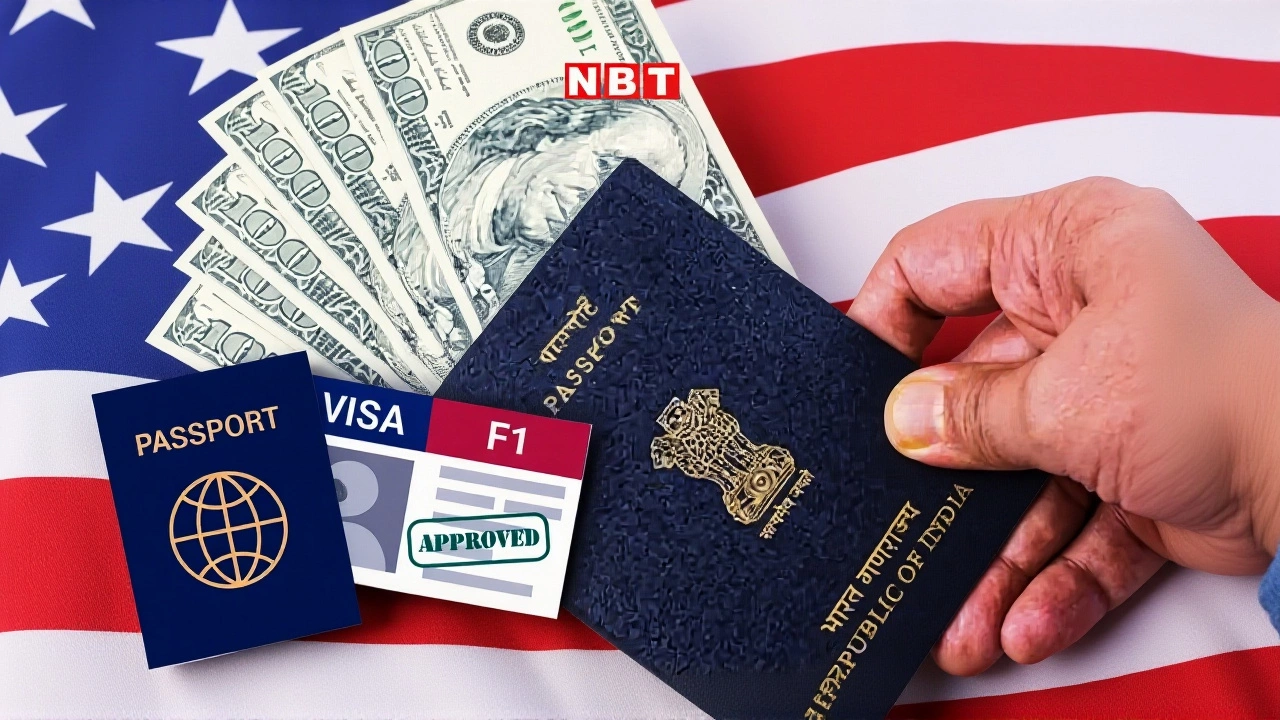When Marco Rubio, Secretary of State of the U.S. Department of State, announced the Announcement of Expanded Screening and Vetting for Visa ApplicantsUnited States on June 18, 2025, the world learned that every F, M and J non‑immigrant visa applicant must set every social‑media account to public. The directive, which also went out through the U.S. Embassy in Malaysia, requires applicants to list every handle used in the past five years on the DS‑160 form. Failure to comply can trigger a Section 221(g) refusal, effectively pausing the visa process until the applicant complies.
Background: From “Catch and Revoke” to Full‑Scale Vetting
The policy didn’t appear out of thin air. In the spring of 2024, pro‑Palestinian protests erupted on campuses across the country, prompting the State Department to tighten its eyes on foreign students. Earlier that year, the agency rolled out the “Catch and Revoke” program, an AI‑driven effort to flag social‑media activity that might justify revoking a visa. The June 18 announcement now extends that surveillance to the very first step: the visa interview.
Historian Carlos Burgos, an immigration attorney with Burgos & Van Browne Law Firm, told the The Independent Florida Alligator that the move represents "total and absolute discretion" for DHS and consular officers. He warned it could chill free expression, especially among activists who already feel vulnerable.
What the New Rules Actually Require
- All F‑1 (academic), M‑1 (vocational) and J‑1 (exchange) visa applicants must set every social‑media profile to “public” before the interview.
- Applicants must provide a complete list of usernames, handles, and URLs from the last five years on the DS‑160.
- Consular officers are instructed to conduct a “comprehensive and thorough vetting, including online presence,” looking for any signs of hostility toward U.S. institutions, support for terrorism, antisemitic harassment, or affiliation with militant groups.
- If an account remains private, officers treat the case as an incomplete submission and may issue a Section 221(g) refusal until the applicant complies.
- A two‑tier expedited appointment system favors students at schools where international enrollment is 15 % or less, effectively prioritising less diverse campuses.
Reactions from Advocacy and Legal Communities
The Electronic Frontier Foundation (EFF) published a scathing analysis on July 15, 2025, dubbing the requirement an “escalation of the Trump administration’s ongoing immigration‑related social‑media surveillance.” The think tank argued that the policy masks a broader intent to police speech rather than protect security, noting that past internal assessments showed no clear link between public profiles and actual threats.
Meanwhile, the Association of International Educators (NAFSA) warned that the rule could create a “two‑tier” system that disadvantages students at flagship universities where international students make up a larger share of the population. Their November 2025 blog post listed eleven practical consequences, from longer wait times to increased administrative burdens for university international offices.
Law firm Ogletree Deakins released a September 2025 memorandum confirming that consular officers must also flag any “support of terrorism, antisemitic harassment, violence, or militant groups” discovered during the social‑media sweep. The memo stresses that officers must take screenshots and keep detailed case notes, effectively creating a paper trail that could be used in future immigration proceedings.
Academic and Institutional Pushback
Universities are feeling the heat. The Yale Office of International Students and Scholars sent a June 18 memo to its 2,800 international students clarifying the new requirement and promising assistance with the DS‑160 updates. At the same time, CUPA‑HR (College and University Professional Association for Human Resources) circulated a June 24 “Cable Update” urging schools to prepare for a potential surge in visa‑related paperwork.
Critics point out that the policy could push students toward alternative platforms with weaker privacy controls or even encourage them to fabricate “public” personas solely for immigration purposes. Such behaviour could distort the authenticity of online discourse, a concern echoed by digital‑rights scholars at the University of California, Berkeley.

Implications for Prospective Students
For a prospective Brazilian PhD candidate eyeing a J‑1 research fellowship, the new rule means a new line on the application: “List all social‑media handles used since 2020.” If the candidate’s Instagram is set to private, they must flip that switch, exposing personal photos and private conversations to anyone with an internet connection. The fear, as Burgos notes, is that a single misunderstood post could trigger a denial, even if the content has nothing to do with security.
Financially, the extra compliance step adds cost. Many visa‑counseling firms now charge an additional $150‑$250 to audit an applicant’s online presence and ensure all accounts are public. For students already juggling tuition and living expenses, that’s a non‑trivial burden.
What Comes Next? Monitoring, Legal Challenges, and Potential Adjustments
Legal challenges are already brewing. A coalition of student groups filed a lawsuit in the U.S. District Court for the District of Columbia on August 30, 2025, arguing that the policy violates the First Amendment and the Privacy Act. If the case proceeds, it could force the State Department to reconsider the blanket “public” requirement.
Congressional oversight is also on the radar. Senator Mitch McConnell (R‑KY) announced a hearing for October 2025 to review the “impact of social‑media vetting on U.S. higher‑education competitiveness.” The hearing could lead to legislative tweaks, perhaps limiting the policy to a risk‑based subset of applicants rather than the entire F‑M‑J pool.
Until then, the State Department maintains that a visa is a “privilege, not a right,” and that public social‑media profiles are a reasonable tool for safeguarding national security. Whether that rationale holds up in court—or in the eyes of international students—remains to be seen.
Key Takeaways
- All F, M and J visa applicants must make every social‑media account public and disclose every handle from the past five years.
- Failure to comply can trigger a Section 221(g) refusal and delay or deny the visa.
- The rule has sparked criticism from civil‑rights groups, legal scholars, and university administrators.
- Potential legal challenges could reshape or overturn the policy in the coming months.
Frequently Asked Questions
How does this policy affect current international students on F, M, or J visas?
Students already holding a visa are not required to change their privacy settings, but any renewal or extension will trigger the same public‑profile demand. Consulates may also re‑examine existing visas if they suspect non‑compliance, so students should be prepared to adjust their accounts proactively.
What legal recourse do applicants have if their visa is denied because of social‑media content?
Applicants can appeal a Section 221(g) refusal by providing the requested public profile information and requesting a review. If the denial is based on perceived hostile conduct, the applicant may file a petition for review with the Administrative Appeals Office, and potentially pursue a civil rights lawsuit alleging First Amendment violations.
Why are universities with less than 15 % international enrollment getting faster appointments?
The State Department’s cable instructed consular sections to prioritize “expedited appointments” for institutions where foreign students represent a small fraction of the campus. The rationale is to reduce workload spikes at larger schools, but critics argue it creates an inequitable two‑tier system.
What does the Electronic Frontier Foundation say about the effectiveness of this surveillance?
EFF’s July 15 analysis cites internal government reports indicating that public‑profile monitoring has not reliably identified security threats. They argue the policy sacrifices privacy and free speech without demonstrable safety gains.
Will this requirement apply to other visa categories in the future?
Officials have hinted that the State Department could expand the rule to other non‑immigrant categories if the current rollout proves “effective.” However, any expansion would likely face similar legal and diplomatic pushback.




